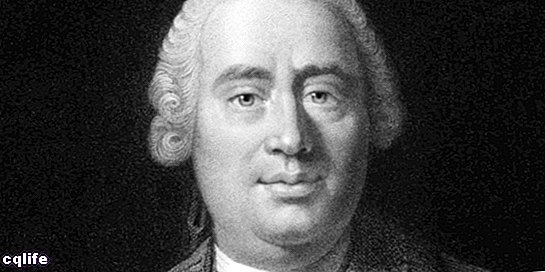- What is empiricism?
- Characteristics of empiricism
- Importance of empiricism
- Representatives of empiricism
- Empiricism and rationalism
We explain what empiricism in philosophy is, its characteristics and its main representatives. Also, differences with rationalism.
Empiricists like Locke held that it can only be known by experience.What is empiricism?
Empiricism is a philosophical theory that considers experience and perception sensory as the best way to truth of things.
That is, for an empiricist the reality experienced is the basis of everything knowledge, both in its origin and its content, since the human mind must start from the world of the sensible (what is perceived by the senses), to later form ideas and concepts.
Empirical thinking has roots in classical antiquity, especially in the work of Aristotle and other Greco-Roman philosophers (especially the sophists and skeptics). In fact, it takes its name from the Greek word empeirikós, equivalent to "guided by experience."
At that time, the empirical was understood as useful knowledge and technical of doctors, architects and craftsmen in general, in contrast to the theoretical and inapplicable knowledge that was obtained from the contemplation of the life.
However, empiricism emerged as a philosophical movement in the Modern age, end point of a process thinking started on the downside Middle Ages.
At that time the new philosophical theories and the Scientific revolution they were renovating the thought of the West, proposing two Research Methods (Descartes and Bacon), and two models of philosophical thought: empiricism and rationalism.
Empiricism was particularly developed by different English philosophers, which is why "English empiricism" is often spoken of: Bacon, Hobbes, Locke, Berkeley, Hume. Their rivals, on the other hand, tended to come from the continent: Descartes, Spinoza, Leibniz, etc.
Characteristics of empiricism

Empiricism was characterized by the following:
- He valued the sensible and perceptible reality as the origin of all ideas, that is, the world is first perceived and then thought or imagined. In other words: the human being learn through your senses.
- He argued that knowledge is subjective, and that there were no preconceptions, but that one is born with a "blank" mind. Later, knowledge is acquired from internal experiences (thoughts, emotions, etc.) and external (material and physical experiences).
- He opposed the rationalism and to historicism as theories of knowledge. At the same time, he continued and valued the nominalist criticism begun in the late Middle Ages (regarding the so-called "problem of universals").
Importance of empiricism
Empiricism was a fundamental school in the emergence of future currents of thought. For example, it allowed the emergence of scientific thought and from scientific method, within which a modern empirical thought played a very important role, born as a result of that which sustained English empiricism.
To do this, empiricism had to first open the doors to the atheism. On the other hand, from the opposition between empiricism and rationalism, Kantian thought arose that tried to reconcile their positions, and that later played a decisive role in the culture of the West.
Representatives of empiricism

The main representatives of empiricism were:
- John Locke (1632-1704). English philosopher and physician, father in addition to Liberalism Classical, his work was greatly influenced by the writings of Sir Francis Bacon, and on the basis of them he proposed great contributions to the theory of social contract. Its famous Essay on human understanding of 1689 was a reply to René Descartes, proposing the human mind as a Tabula rasa, on which knowledge is printed a posteriori through experience.
- David Hume (1711-1776). Scottish philosopher, economist and historian, he is one of the central figures of the Illustration Scottish and Western thought, whose works defended the thesis that knowledge derives from sensible experience. Their essays Treat of human nature and An Enquiry Concerning Human Understanding , in which he reduces all knowledge to "impressions" or "ideas", from which two types of truths emerge: "factual truths" and "relation of ideas".
- George Berkeley (1685-1753). Also known as the Bishop of Berkeley, he was an Irish philosopher whose work proposed the idealism subjective or immaterialism, whose main postulate was that there is no matter, but the perception of it, that is, that the world exists only while we perceive it. To explain why the world does not disappear while we sleep or when we blink, he proposed that God was the great observer of the universe, whose constant and universal eye guaranteed that everything continued to exist.
Empiricism and rationalism
Empiricism and rationalism were two radically opposite sides, both daughters of the skepticism. On the one hand, English skepticism maintained the inexistence of knowledge a priori, and defended the perceptible through the senses as the way of the human being to form knowledge.
On the contrary, rationalism defended reason and the intellect as ways of building knowledge. That idea is summarized in the famous Cogito ergo sum from Descartes, "I think, therefore I am." Rationalism rejected the importance of the senses, claiming that they can always deceive us or offer information partial of reality.
